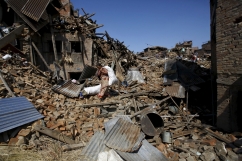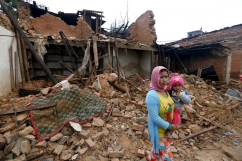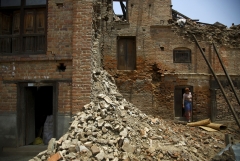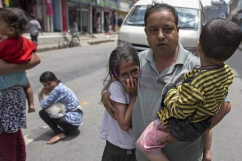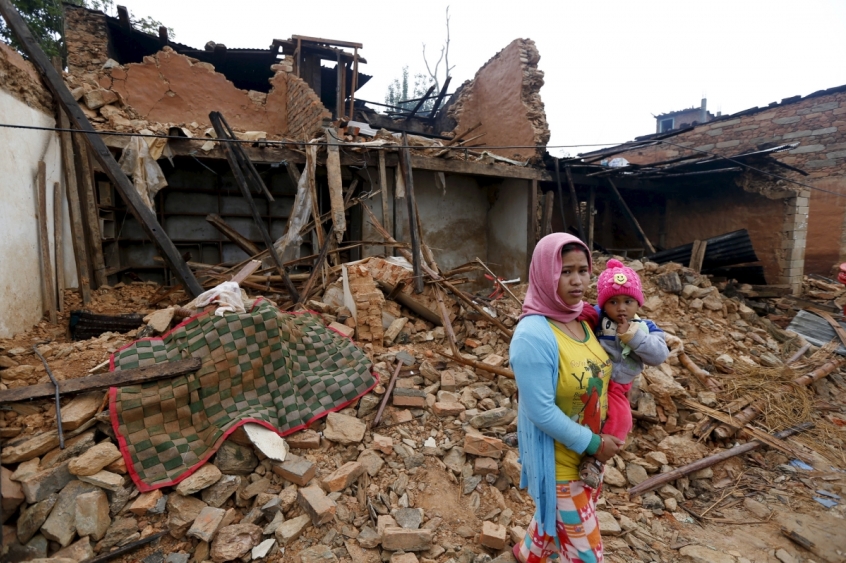
In an attempt to find some way to connect with the devastating news of the earthquakes in Nepal, many Christians have written on Twitter about the need to spread the gospel in the country and about Christ's return.
A Storify page was set up under the headline 'Vultures, Scavengers & Christian Missionaries', collecting numerous Christian tweets about the earthquake on April 25, framing them as "Christian missionaries salivating at their chance to convert Hindus & Buddhists there to Christianity." While these tweets might have come from an earnest sense of compassion, the perception can be that their response is opportunistic and devoid of charity.
People of all faiths (and probably none) have used the hashtag #PrayforNepal, and whether there was actually as much praying done as tweeting is questionable, but that's not the main point of the Storify collection. Instead it's the fact that the immediate response is to use a high-profile news story about an earthquake to talk about the importance of spreading the gospel in Nepal.
In the context, it doesn't seem unreasonable that someone would see this response as like pouncing on the poor, or a glib response to great suffering.
Let me clarify: actually stopping and praying for disaster zones is a really important thing to do; I believe God can and does answer prayer. I also think that Christians should be at the forefront of good, responsible, sustainable development work and disaster relief efforts. Part of that is sharing the gospel, because if we really believe what we say we do, then that means telling other people about it.
But people have just lost husbands and wives, children, friends. Their homes are in ruins, they've lost their livelihoods, and yes, their places of worship too.
Let us stop and think about that for a moment before declaring publicly that the temples – the places they love, presumably as much as we love our churches – should never be rebuilt, or calling for support for a mission to spread the gospel.
There are some who put #praying to good use, but too often it is more about salving our conscience than entering into meaningful intercession for the broken-hearted. A tweet costs us very little and has the added benefit of making us look good. But it's also easy to forget that it's a global forum, with many people who have a very different worldview from our own. And we definitely don't want the perception of Christianity to be that we're insensitive and lacking in compassion for those who are grieving.










